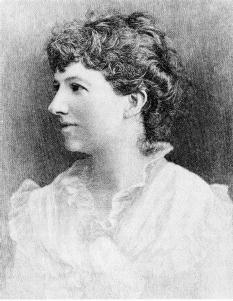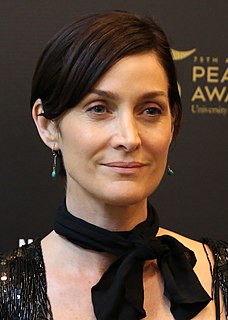A Quote by Charlie Chaplin
I do not have much patience with a thing of beauty that must be explained to be understood. If it does need additional interpretation by someone other than the creator, then I question whether it has fulfilled its purpose.
Related Quotes
He stood staring into the wood for a minute, then said: "What is it about the English countryside — why is the beauty so much more than visual? Why does it touch one so?" He sounded faintly sad. Perhaps he finds beauty saddening — I do myself sometimes. Once when I was quite little I asked father why this was and he explained that it was due to our knowledge of beauty's evanescence, which reminds us that we ourselves shall die. Then he said I was probably too young to understand him; but I understood perfectly.
At one time I thought the most important thing was talent. I think now that the young man must possess or teach himself, training himself, in infinite patience, which is to try and to try until it comes right. He must train himself in ruthless intolerance-that is to throw away anything that is false no matter how much he might love that page or that paragraph. The most important thing is insight, that is to be-curiosity-to wonder, to mull, and to muse why it is that man does what he does, and if you have that, then I don't think the talent makes much difference, whether you've got it or not.
In my opinion what distinguishes the Bible from the other books is its sense of time. Its first concern is to establish a calendar. Then it traces a genealogy. It imposes rhythms, it orders, it operates, it does not abandon the earth where its destiny must be fulfilled and whose own destiny must be fulfilled by it. Its history will be that of men and not of idle gods. The whole spirit must become incarnate and explore the possible.
Nevertheless, he must be cautious in believing and acting, and must not inspire fear of his own accord, and must proceed in a temperate manner with prudence and humanity, so that too much confidence does not render him incautious, and too much diffidence does not render him intolerant. From this arises the question whether it is better to be loved more than feared, or feared more than loved.
Anyone who appears to be triggered out of watchfulness and into action by your appearance must be explained. Anyone observing you carefully must be explained. Anyone whose behavior seems to be geared to yours must be explained. If the explanation does not satisfy you, be ready to take appropriate defensive action.
Self-development is the only thing that keeps a person from burning out. We all have many needs - the need for certainty, the need for variety, the need for significance, and the need for connection. But, ultimately, we must grow, and we must contribute in a meaningful way in order to feel fulfilled.
Like many other scientists who hold the Catholic faith, I see the Creator's plan and purpose fulfilled in our universe. I see a planet bursting with evolutionary possibilities, a continuing creation in which the Divine providence is manifest in every living thing. I see a science that tells us there is indeed a design to life.
The person in misery does not need a look that judges and criticizes but a comforting presence that brings peace and hope and life and says: 'you are a human person: important, mysterious, infinitely precious, what you have to say is important because it flows from a humn person; in you there are those seeds of the infinite, those germs of love... of beauty which must rise from the earth of your misery so humanity be fulfilled. If you do not rise then something will be missing... Rise again because we all need you... be loved beloved.'
The universe must be experienced as the Great Self. Each is fulfilled in the other: the Great Self is fulfilled in the individual self, the individual self is fulfilled in the Great Self. Alienation is overcome as soon as we experience this surge of energy from the source that has brought the universe through the centuries. New fields of energy become available to support the human venture. These new energies find expression and support in celebration. For in the end the universe can only be explained in terms of celebration. It is all an exuberant expression of existence itself.



































